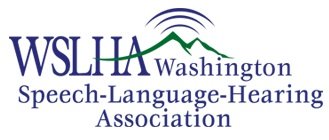About the Webinar:
A majority of the world’s people speak more than one language; monolingualism is the exception, not the rule. Yet the study of language development and much of the evidence base in assessment and treatment of developmental language disorders relies heavily on monolingual learners. For Speech-Language Pathologists (SLPs), this often leads to a disconnect between the population we serve, and the evidence base we draw from. In Washington State, for example, 36.4% of families who received Early Support for Infants and Toddlers (ESIT) services between 2009 and 2017 spoke a language other than English (Zhao, 2019), but only 6.5% of SLPs are registered as multilingual service providers (ASHA, 2022). A recent study showed that monolingual providers report feeling less competent than bilingual providers when working with culturally and linguistically diverse families (Parveen & Santhanam, 2021). Nonetheless, SLPs (mono- and multilingual) play an important role in promoting positive outcomes for multilingual children with disabilities and their families. This course will provide current perspectives for speech-language pathologists on supporting multilingual children under five with language delays and disorders. Participants will learn about harmonious bilingual practices for young children and families (de Houwer, 2020). Evidence based strategies to identify language impairments in multilingual learners while considering cultural and linguistic contexts will be presented. Examples and supporting evidence will empower SLPs with foundational knowledge and skills to work with culturally and linguistically diverse populations in Washington state.
Cost: Members - $35 | Non-Members - $50
Learning Objectives:
Participants will be able to describe harmonious bilingualism in children under five with language delays or disorders.
Participants will identify evidence-based strategies for collaborating with multilingual families through the evaluation process.
Participants will be able to implement evidence-based approaches to intervention for multilingual learners with language delays or disorders.
Meet the Speakers:
Amy Pace
Amy Pace is an Associate Professor of Speech and Hearing Sciences at the University of Washington. She earned her doctoral degree in Language and Communicative Disorders from UCSD and completed a postdoctoral fellowship in Developmental Psychology at Temple University. She directs the Child Language Lab and her research focuses on language acquisition, assessment, and intervention from birth to five, with emphasis on promoting healthy language development and learning outcomes.
Financial Disclosure: Salaried employee of the University of Washington and received a voucher for a continuing education course through WSLHA for this presentation.
Non-Financial Disclosure: None.
Adriana Luna
Adriana Luna is a postdoctoral fellow in Speech and Hearing Sciences at the University of Washington. Adriana earned both her masters and doctorate in Special Education from the University of Washington. Her research interests include providing culturally responsive services for young children with disabilities and their families, parent/caregiver coaching, and increasing access to specialty services for Spanish-speaking families.
Financial Disclosure: Salaried employee of the University of Washington and received a voucher for a continuing education course through WSLHA for this presentation.
Non-Financial Disclosure: None.
Laura X. Guo
Laura X. Guo is a third-year PhD student in Speech and Hearing Sciences at the University of Washington and holds a master’s degree in Speech & Hearing Sciences from Portland State University. Her research interests include parent coaching, bilingual language assessment, and intervention in young children.
Financial Disclosure: Received a voucher for a continuing education course through WSLHA for this presentation.
Non-Financial Disclosure: None.
Intermediate Level – 0.15 ASHA CEUs
ASHA CE Provider approval and use of the Brand Block does not imply endorsement of course content, specific products or clinical procedures.
WSLHA charges a processing fee of $5.00 for ASHA CEUs ($7.00 non-members).
OSPI Clock Hours – 1.5 hours. OSPI clock hours available by registering and paying for hours with the ESD113. Link is coming soon.
Credits and clock hours must be purchased prior to the program. Any requests for credits/hours after the date of each workshop will be denied.






